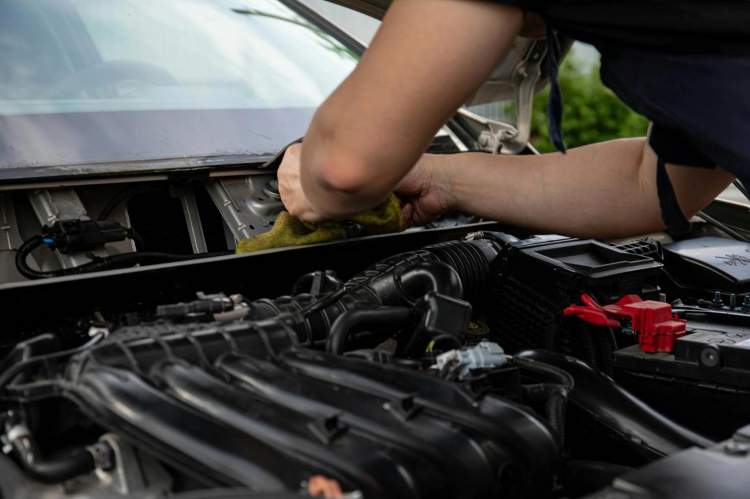Institution of Welayeh
Now we reach into the wasp's nest. We have come to a concept that has a sensitive explanation.
Welayah or Walaya (Arabic: واليةِ ) means "guardianship", or “governor”, and is a key word in Shi‘ism that refers among other things to the nature and function of the Imamate. Welayah is a word which a power gives authority/guardianship to a person, community, or country that is under the direction and rule on behalf of another. "Wali" is someone who has "Walayah" (authority or guardianship) over somebody else. For example, in fiqh, a father is wali of his children. The word Wali holds a special importance in Islamic spiritual life and it is used with various meanings, which relate to its different functions, which include: “next of kin, ally, friend, helper, guardian, patron, and saint”. In Islam, the phrase هللا ولي waliyullah can be used to denote one vested with the "authority of God":

Your (real) friends (Wali) are (no less than) Allah, His Messenger, and the (fellowship of) believers, - those who establish regular prayers and regular charity, and they bow down humbly (in worship). (Quran 5:55)
Wali as passive designates one whose affairs are completely guided by God the exalted. Wali as active designates one who takes it on himself to worship God and obey him.
Welayah is a responsibility that comes from God. Such is the father's bond with his daughter. In this case, the father is the wali ul-amr, so using an ugly interpretation he is the mandatory over the girl, but it rather means responsibility. Upon marriage, this right passes to the husband, from which time he becomes the wali ul-amr. In practice, the institution of welayeh also exists in secular systems, as parents are also guardians until adulthood and if there are no parents, there is guardianship authority, which is responsible for minor children. There is even also an institution of bail or guarantor in Islam, known as “Kafala.” There is an overlap at this point. In case of value-representing people and if the whole society is representing moral value, the system works perfectly. However, if the institution of Welayah falls into the hands of bastards, everything will turn around. There are a few examples of that in history, not to mention our actual days. True, there are several examples that legislation and jurisdiction fall into the hands of bastards even in the secular system as well. Does anyone have any objection?
In this regard, we cannot avoid talking about the Shiite-Sunni difference of views, which I emphasize, do not affect the pillars of faith! So, unlike the studies of many analysts from outside, there is no religious disagreement between Shiites and Sunnis! The difference exists in the practice of some branches of law (fiqh). And in one more issue. Who carries on the mission of Mohammed (peace be upon him) and who is to whom the Umma owes unconditional obedience? According to Shiite opinion, the sermon of Prophet Muhammad (peace be upon him) at Ghadir Khumm, a year before his death (632), is authoritative, in which he appointed Ali ibn Abi Talib, his cousin, to be the Wali, thus the custodian of the mission. In this interpretation, Ali ibn Abi Talib means the Household of the Prophet and his descendants. To prove this, the following verse of the Quran is cited as a reference:

That is (the Bounty) whereof Allah gives Glad Tidings to His Servants who believe and do righteous deeds. Say: "No reward do I ask of you for this except the love of those near of kin." And if any one earns any good, We shall give him an increase of good in respect thereof: for Allah is Oft-Forgiving, Most Ready to appreciate (service). (Quran 42:23)
No sort of tangible reward does the prophet of Allah ask for proclaiming the Glad Tidings of Allah. But at least he has the right to ask that his kith and kin should not persecute him and put all sorts of obstacles in his way, as did the Quraysh against the Holy Prophet. The love of kindred may be extended to mean the love of our common humanity, for all mankind are brothers descended from Adam. Everyone can understand the ordinary love of kindred.
And now we have to be sane-minded, because the following sentence is professed by each school, but in a different sense: “No reward do I ask of you except the love of those near of kin.” In the Sunni conception, we come across the interpretation of “love of one’s own relatives,” or “let there be peace between us,” “put down our arms, let’s not fight any more”. So, giving a peaceful hand to the narrower (Quraish) or even wider family, to humanity.
In Shiite interpretation, this sentence specifically calls for the love and pursuit of the Household of Muhammad (peace be upon him), i.e., it is an obvious decision where the religious leadership and secular power should belong to. In Shiite view, this person is the Imam. In Sunni perception, imam is a completely different person. He is a respectful man who leads the prayer.
The issue of Welayah and Wali fills volumes in libraries of Islamic Law (fiqh). In my article on Sharia, we have discussed how the law of Divine ordinance is interpreted in terms of age and place. This is called Fiqh and there are duties and competencies assigned to that. The walayat originally is not a legal category but a responsibility to follow the ordinance of Allah. There is no definable element to that, because conscience, total devotion (not fanaticism!) would be difficult to describe in words, while the practice of the institution of wealayat has to be linked to these terminologies.
In the above, I have tried to explain something to a materialized European brain in which there is no compartment where the concept of welayat can be linked to. So, maybe I could just give a brief insight in order to make it sensed. My sorrow is that this compartment is slowly being taken out of the Muslim brains as well. After all, in most places, the Welayah is nothing more than a mean of exercising power.




















